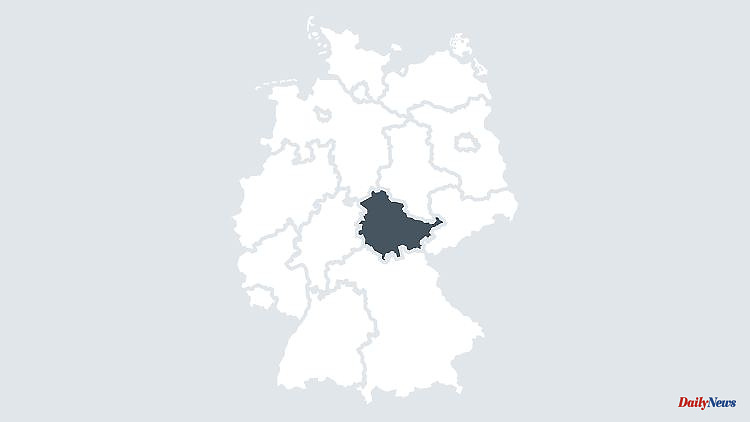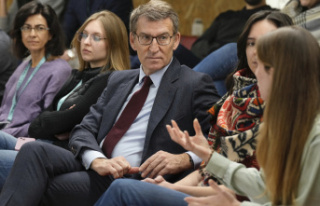The decision on the location for the future center was eagerly awaited. The award for Halle causes disappointment among the Thuringian applicants - and a little hope.
Erfurt (dpa/th) - After the decision in favor of Halle an der Saale as the seat of the planned new future center for German unity and European transformation, disappointment and hope are mixed in Thuringia. "Through the application, something lasting has emerged in Jena, even without the bid," said Lord Mayor Thomas Nitzsche, emphasizing the great commitment of many of the city's stakeholders. "We will stick to the topic together and continue to actively shape transformation processes in the future." He hopes that central Germany as a whole will benefit from the center in Halle.
The President of Jena University, Walter Rosenthal, said he was positive about having supported the city's application as a partner. "We were able to present the outstanding transformation research and our Eastern Europe expertise at the Friedrich Schiller University to the public and make new contacts." With the application, the actors could have shown what characterizes science in Jena, he said: "In addition to excellent research, this is close cooperation with politics, business, civil society and culture."
"As a state father, I am disappointed because the state applications from Jena and Eisenach had strong elements," said Prime Minister Bodo Ramelow (left) of the editorial network Germany (RND). The Halle-Jena-Leipzig metropolitan region will be further strengthened in this way, he said. "The whole of Central Germany has good prospects." Minister of Culture Benjamin-Immanuel Hoff (left) also described the location of the center in Halle as a benefit for Central Germany as a whole.
In Eisenach, the smallest of all applicant cities, the disappointment is great. The settlement of the center would have been "essential for the further development of the city and the entire surrounding area, unlike other applicants," said Mayor Katja Wolf. "The region's greatest opportunity for decades has passed." Unlike others, Eisenach "did not submit an ivory tower application with a large budget," said Wolf. The application came about largely through volunteering committed citizens. "Our campaign was a citizens' movement from the heart of the city."
Eisenach, with around 42,000 inhabitants, was the only applicant who did not have its own university. Wolf described it as understandable that the decision had been made in favor of a large university location. Nevertheless, she had hoped that aspects such as the central location and the experience of profound changes would have been given more consideration.
Wolf wants to remain in contact with the federal government in order to raise support for the city's "big transformation task" in other ways. Since Eisenach specializes in the internal combustion engine in many areas, the change in the automotive industry will have a special impact, she said. The site of a former automobile factory in Eisenach was intended as the location for the Future Center.
Both Thuringian applicants deserved the center, said CDU faction leader Mario Voigt. At the same time, he emphasized that the East "needs important decision-making bodies, not museums". It is important to bring large federal authorities to the east and especially to Thuringia. "The infrastructure and the will of the people to help shape the country is there."
The selection jury announced the recommendation for Halle on Tuesday evening. In addition to the two Thuringian applicants Jena and Eisenach, Frankfurt (Oder) and the duo Leipzig and Plauen were in the running. After an architectural competition, a "building with outstanding modern architecture" is to be built by 2028 for up to 200 million euros.












